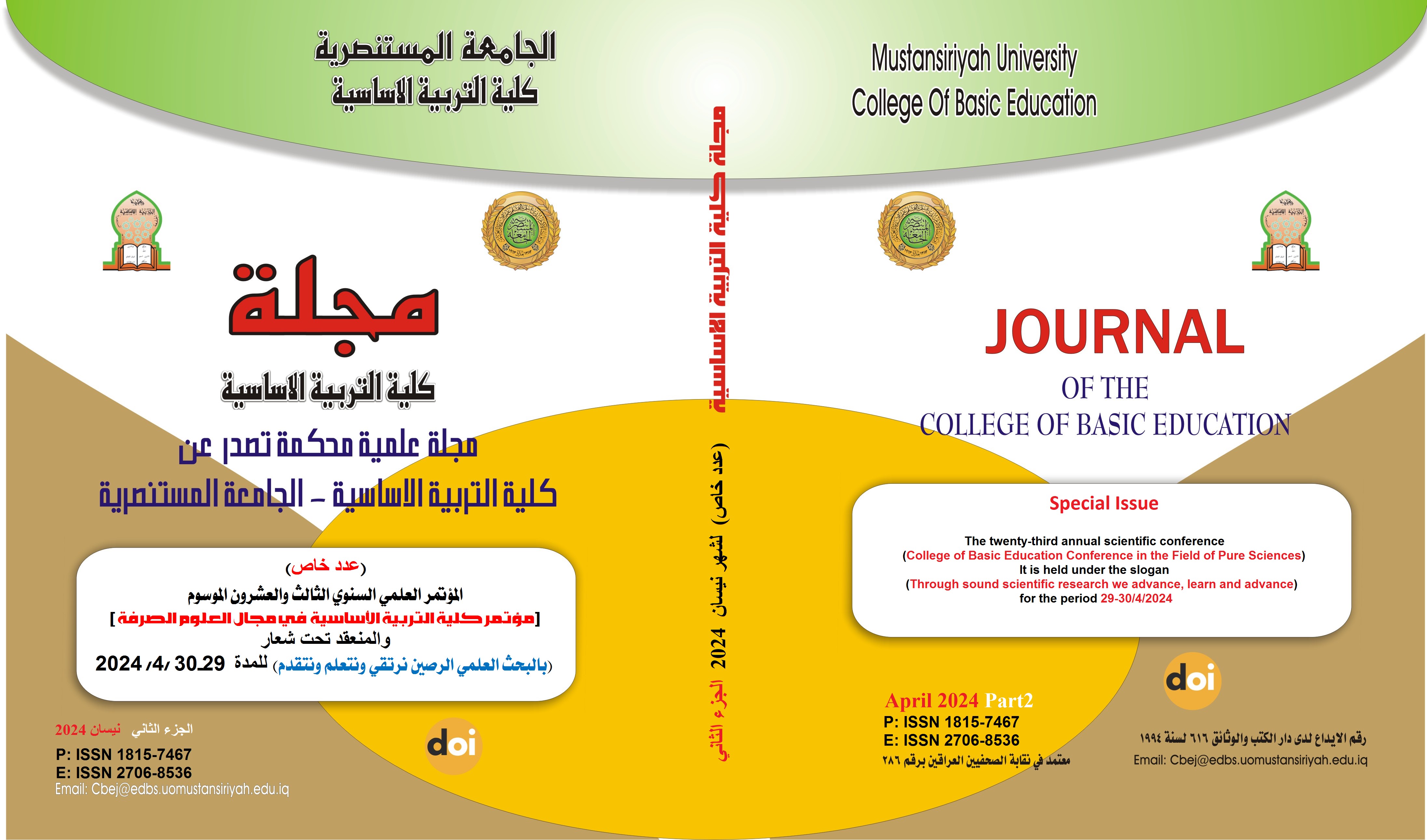The impact of the R.E.A.C.T strategy on social intelligence among fifth-grade female students.
Main Article Content
Abstract
This research aims to investigate the impact of the "R.E.A.C.T strategy on the social intelligence of fifth-grade female students in science." From this, the following null hypothesis was derived: "There is no statistically significant difference at a significance level of (0.05) between the mean scores of the students in the experimental group, who will be taught according to the R.E.A.C.T strategy, and the mean scores of the students in the control group, who will be taught using the traditional method, in the social intelligence scale."The researchers adopted an experimental design with two groups (experimental and control) with a post-test for social intelligence. The research population included all fifth-grade female students in the General Directorate of Education in Baghdad/Al-Rusafa Second, from which a purposive sample of (60) students from Zizafoun Primary School for Girls was selected and divided into experimental and control groups (3 students for each group). The researchers ensured equivalence between the two groups based on several variables: previous achievement, previous knowledge test, Raven's intelligence, and social intelligence in the first semester of the academic year (2023-2024). The researcher selected the three initial units from the science textbook for the fifth grade during the experiment period and formulated the behavioral objectives for the topics to be studied, totaling (178) behavioral objectives according to Bloom's taxonomy levels (remembering, understanding, applying, analyzing).The researcher taught the students in both research groups herself. To achieve the research objective, the researcher developed a research tool, which is the Social Intelligence Scale consisting of (32) items distributed across four domains: leadership, social relationships, social responsibility, and teamwork. Each item had three alternatives. The researcher applied the research tool to the primary sample after the end of the experiment period. After analyzing the results statistically using the independent samples t-test for the variable (social intelligence), the results showed that the experimental group, which was taught using the R.E.A.C.T strategy, outperformed the control group, which was taught using the traditional method, in the social intelligence scale with an effect size of (1.03), which is a large effect in favor of the experimental group.Based on the research results, the researcher concluded the following:Teaching fifth-grade female students according to the R.E.A.C.T strategy had a positive impact on improving their social intelligence. Therefore, the researcher recommends some recommendations and suggestions.
Article Details

This work is licensed under a Creative Commons Attribution-ShareAlike 4.0 International License.
